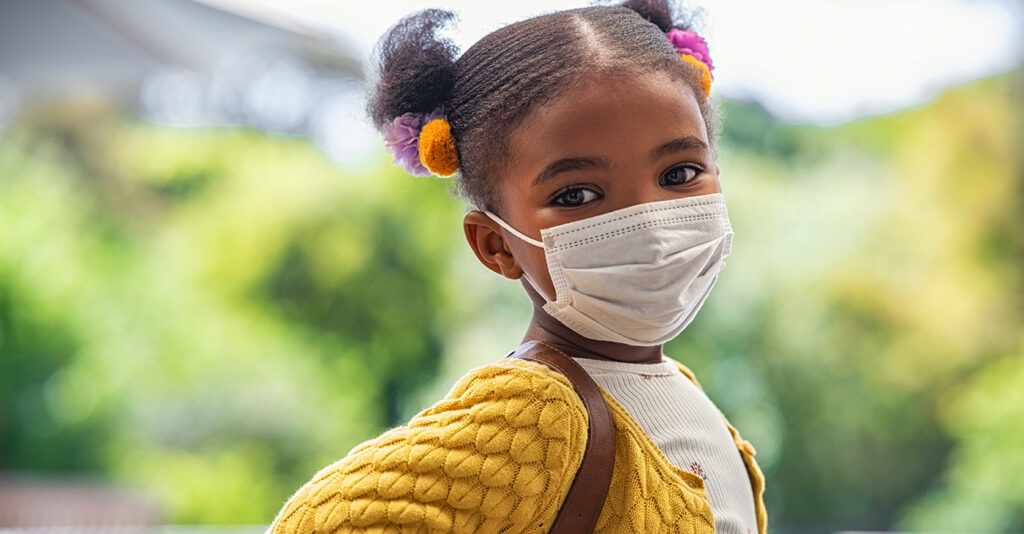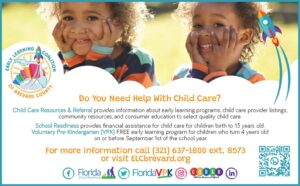Things Parents Should Know Sending Their Kids Back to School

Children, especially younger children, seem to always have a sniffle or runny nose. However, in today’s climate, it’s better to be safe than sorry.
By Breonna Randall, Howard University News Service for BlackPressUSA,
NNPA NEWSWIRE — The unanimous opinion among our doctors was if your child can get vaccinated, they should. The only thing that has proven to be effective so far in fighting COVID-19 is the vaccine, they said. While a tiny fraction of people has died from the vaccine, more than 600,000 have died from the disease. Children under the age of 12 cannot be vaccinated, though pharmaceutical companies are working on a vaccine for them
For the first time since March 2020, millions of students, pre-kindergarten to high school seniors, will be attending in-person classes. Aside from attending class, they will be also participating in extracurricular activities, like sports, music and clubs. Parents have many concerns and questions. Howard University News Service reached out to five physicians for answers, Dr. Hadie Shariat, pediatrician, Howard University Hospital; Dr. Katherine Hager, Infectious Disease Fellow, Howard University Hospital; Dr. Catherine Marshall, pediatrician at Balboa Pediatrics; Dr. Andrea Goings, pediatrician, Baby Doc House Calls, and Dr. Stacey Eadie, pediatrician at her own private practice, Peds in a Pod.
Should I get my child vaccinated?
The unanimous opinion among our doctors was if your child can get vaccinated, they should. The only thing that has proven to be effective so far in fighting COVID-19 is the vaccine, they said. While a tiny fraction of people has died from the vaccine, more than 600,000 have died from the disease. Children under the age of 12 cannot be vaccinated, though pharmaceutical companies are working on a vaccine for them.
What if my child is too young for the vaccine?
In this case, the doctors advise, your child should stay away from unvaccinated adults, stay away from crowded indoor places, always wear a mask and keep practicing social distancing and good hygiene. Also always remember to keep up with your local safety guidelines. Guidelines and prevalence of coronavirus are different in different cities and states. Residents may need to be more careful in some locales.
What kind of mask should my child wear and how many do they need?
The readily available blue and white surgical masks are the best option for students of all ages. They will protect your child if they are wearing them properly. The mask should cover their nose and their mouth. If the mask falls to the ground or gets wet either by sneezing into it or from water, they should be discarded, and a new mask put in place. Younger children should carry about a half a dozen surgical masks with them a day.
Students in grades 9-12 should not need to change theirs as often. They may only need to have about three. For older children doubling up by wearing a surgical mask and a cloth mask on top throughout their school day is the best option.
If your child is most comfortable wearing only a cloth mask, that is fine, but remember it needs to be cleaned daily, never wait more than a day to clean or rotate your child’s cloth mask. N-95 masks are said to be the best option, but only if they have been fit tested by a doctor to a child’s face. Children with disabilities who are not able to wear a mask all day should wear a shield.
What should be on my back-to-school shopping list?
You should buy everything that you would already get but more. Make sure your child has more than enough supplies, so they won’t need to ask their classmates to share. Young children like to chew on their pens and sharing those supplies could increase the spread of germs. Aside from masks, you may want to add new items like hand sanitizer and disinfectant wipes.
What are some school habits my child needs to break and new ones they should include?
The number one habit that children of all ages need to break is sharing. They should not share toys, school supplies, food, drinks or anything else. It won’t be easy to get young children to unlearn “sharing is caring,” but it is very important that they try their best.
Other habits that students need to break is any unnecessary touching. Hugging or kissing other students is a no-no. Students have been away from their friends for a very long time, and they may want to show physical affection towards each other when they reunite but it is very important that they don’t as much as possible.
They should also use disinfectant wipes to clean their desks between classes and the handles and locks to their lockers. Finally, most schools do not have automatic sinks or dryers. So, students should consider using paper towels to turn handles off and on and opening doors after washing their hands for at least 20 seconds.
Are there warning signs that my child may have been exposed to the coronavirus?
Children, especially younger children, seem to always have a sniffle or runny nose. However, in today’s climate, it’s better to be safe than sorry. Every day after you child comes home, spend two minutes with your child and let them tell you about their day without asking any specific questions. In that time, they may tell you if they shared toys or snacks with anyone that they shouldn’t have. If your child is having a cough or runny nose, yes it could be allergies or a common cold, but do not risk the safety of your family and others. Keep your children home and quarantine them until they can take a Covid-19 test at a medical facility, not an at home rapid test. A two-year old may get sick and have just a runny nose or sore throat from the disease, but if they infect their grandmother, for example, she could end up in the hospital on a ventilator.
Are extracurricular activities okay for my child to participate in?
There is nothing wrong with your child returning to their extracurricular activities, just as long as these activities are supervised and are following all Center for Disease Control and Prevention and local health guidelines.RELATED TOPICS:“DOUBLING UP”600000 HAVE DIED FROM THE DISEASEALLERGIESALWAYS WEAR A MASKAT HOME RAPID TESTATTENDING IN-PERSON CLASSESBABY DOC HOUSE CALLSBACK-TO-SCHOOL SHOPPING LISTBALBOA PEDIATRICSBLUE AND WHITE SURGICAL MASKSBREONNA RANDALLCENTER FOR DISEASE CONTROL AND PREVENTIONCHEW ON THEIR PENSCHILDREN UNDER THE AGE OF 12CHILDREN WITH DISABILITIESCHILD’S CLOTH MASKCLASSMATESCLEAN THEIR DESKS BETWEEN CLASSESCLUBSCOMMON COLDCORONAVIRUSCOUGHCOVER THEIR NOSE AND THEIR MOUTHCOVID-19COVID-19 TESTCROWDED INDOOR PLACESDISINFECTANT WIPESDR. ANDREA GOINGSDR. CATHERINE MARSHALLDR. HADIE SHARIATDR. KATHERINE HAGERDR. STACEY EADIEFEATUREDFIT TESTED BY A DOCTORFIVE PHYSICIANSGOOD HYGIENEGRADES 9-12HALF A DOZEN SURGICAL MASKSHAND SANITIZERHANDLES AND LOCKS TO THEIR LOCKERSHIGH SCHOOL SENIORSHOWARD UNIVERSITY HOSPITALHOWARD UNIVERSITY NEWS SERVICEHUGGINGKEEP PRACTICING SOCIAL DISTANCINGKISSING OTHER STUDENTSLOCAL HEALTH GUIDELINESLOCAL SAFETY GUIDELINESMEDICAL FACILITYMILLIONS OF STUDENTSMORE THAN ENOUGH SUPPLIESMUSICN-95 MASKSOLDER CHILDRENPARENTSPARTICIPATING IN EXTRACURRICULAR ACTIVITIESPEDS IN A PODPHARMACEUTICAL COMPANIESPRE-KINDERGARTENPREVALENCE OF CORONAVIRUSPROTECT YOUR CHILDQUARANTINE THEMRUNNY NOSESCHOOL HABITSSHARINGSHOW PHYSICAL AFFECTIONSPORTSSPREAD OF GERMSSTAY AWAY FROM UNVACCINATED ADULTSSTUDENTS OF ALL AGESUNANIMOUS OPINIONUNLEARN “SHARING IS CARING”UNNECESSARY TOUCHINGUSE DISINFECTANT WIPESVACCINEWEAR A SHIELDYOUNG CHILDRENYOUNGER CHILDRENDON’T MISSBiden Administration Push Clean Energy Initiatives in Addressing Climate Change








